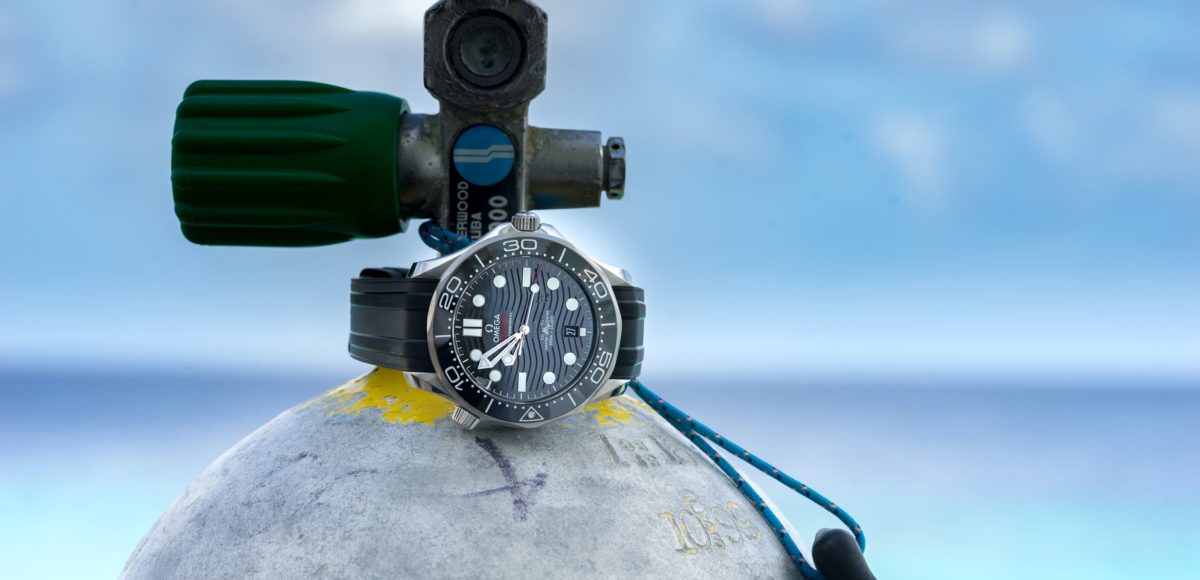What Makes A Great Dive Watch?
Dive watches 101: the how and why of subaqueous timepieces.
Originally published by HODINKEE Shop, June 19th 2021
At this point in their nearly 75 years of existence, dive watches seem relatively well understood. Often seen as the default sport watch, and consistently loved for their adventurous roots, we’ve seen so-called “dive watches” from every corner of the industry. From the affable and affordable to the decidedly decadent, dive watches exist at every price point, and the category is represented by more than a couple of icons in the world of vintage watch collecting.
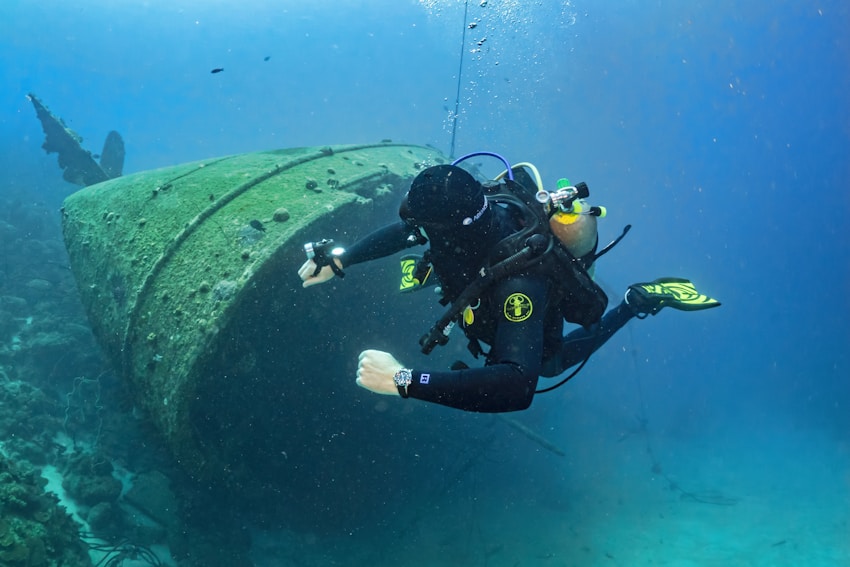
Photo: Gishani Ratnayake
Despite the dive watch’s generally agreed-upon format and unquestionable desirability, how often do we consider the key characteristics that set a great dive watch apart from the flotsam and jetsam found in today’s endless ocean of choices? While certainly imitated and iterated to the point of obscuring the differences between some key models, for those who might dream of taking their dive watch under the water, there are a specific set of traits that help inform any great dive watch.
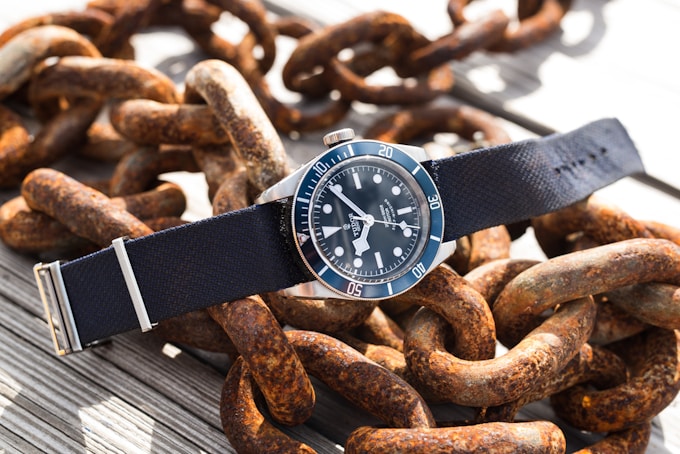
Photo: Gishani Ratnayake
Whether you’re certified and hunting wrecks, or merely PADI-curious (PADI stands for Professional Association Of Diving Instructors) the following simplified elements are the cornerstone traits of the dive watch. Insert water-based pun here: (let’s dive in, no, try to keep your head above water, no, we’ve kept this as straightforward as possible, so you won’t drown in the details).
Water Resistance
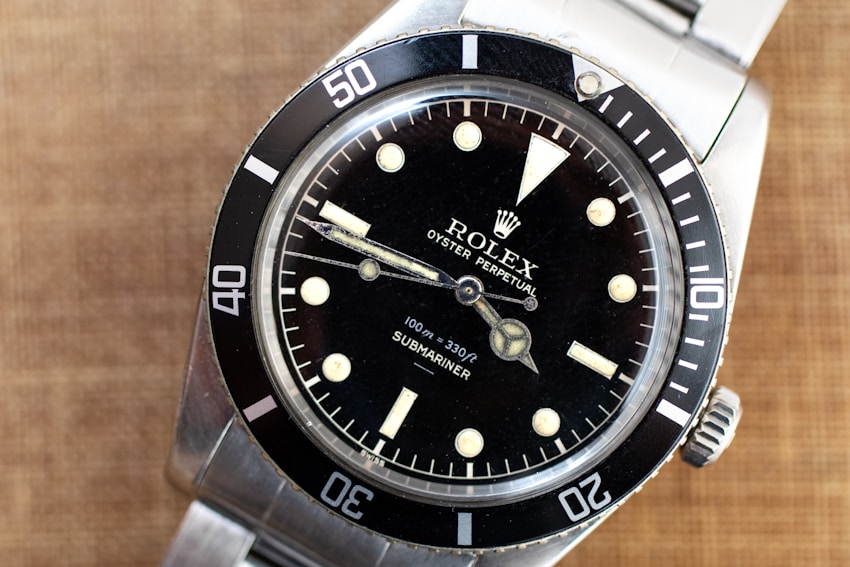
Duh – but still. Any dive watch needs to be water resistant to at least the depth you intend to dive (PADI recreational limits are 40m, or 130ft). With a screw-down crown, 100m is not uncommon, but the generally agreed-upon depth rating for a dive watch is 200m or more. Is this overkill for 95% of diving? Yes, but any ISO-compliant diver will have been pressure tested in excess of what is written on the dial. Don’t overthink water resistance (it’s about your watch surviving, so a bit of wiggle room is good) and if your watch is old or well-worn, consider having it pressure tested from time to time – for vintage dive watches, we strongly recommend a pressure test before any sort of immersion, lest you destroy a sentimentally (and possibly financially) valuable watch.
Reasonable Accuracy
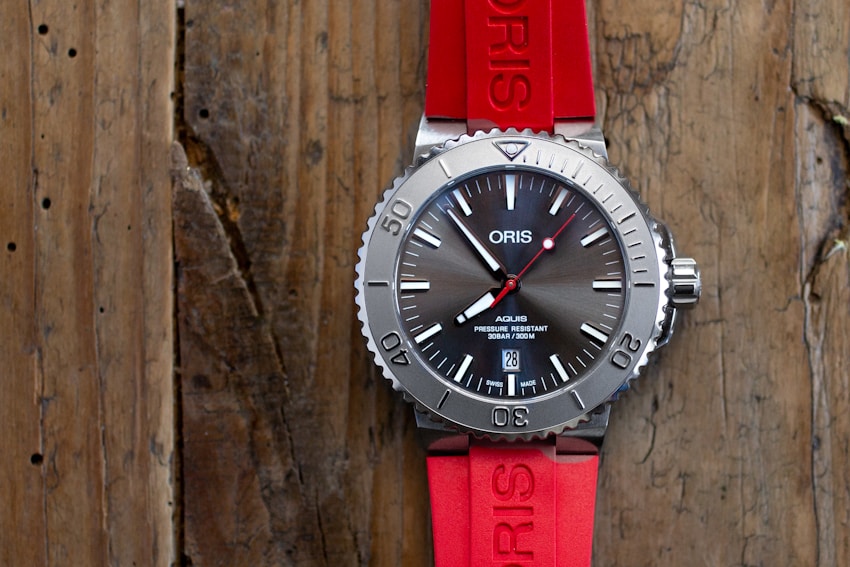
Given that the average recreational dive is not much more than an hour in length, this shouldn’t be an issue for all but the most clapped-out of old dive watches. That said, you do need a watch that can be accurate to something like one minute over the span of an hour. Given the timekeeping ability of properly maintained movements both young and old, this is a really low bar. That said, it does help to have some faith in whatever time is being indicated by the minute hand. Anything more is for knowing when the cantina opens and to make sure you don’t miss the early dive boat. And remember, you might actually need that watch as a backup if your dive computer fails (unlikely, but it happens) so as far as accuracy goes, better to have it and not need it than need it and not have it.
A Legible Dial
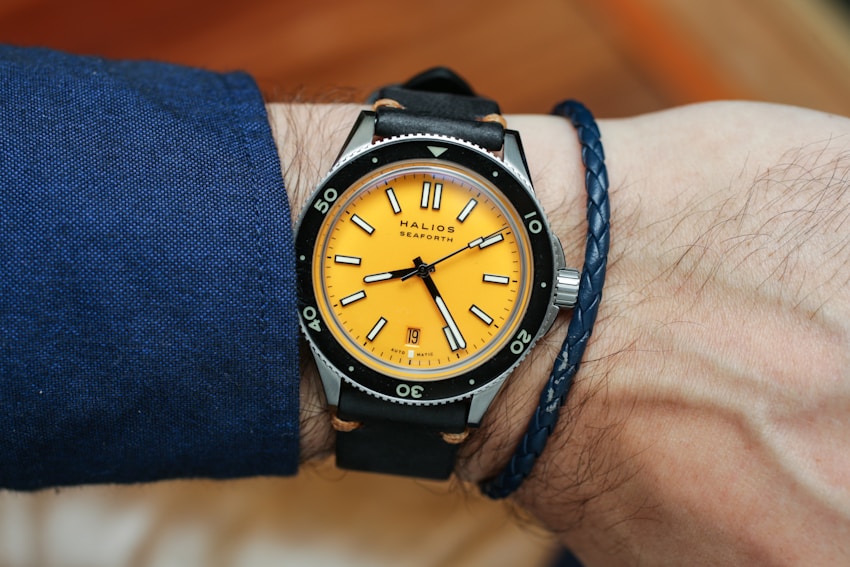
This is crucial. As you don’t want to waste any bottom time trying to decipher some over-complicated time display, you want a dive watch that can be read at a glance. This means a high contrast dial, a distinctive and easily read minute hand, and plenty of lume for low light scenarios or night diving. When diving, there is a good chance that the other dials for your kit (air pressure, back-up depth, a proper dive computer) offer a luminous treatment that is meant to be quickly charged with a blast from a flashlight, and that goes for your watch too. As long as the lume is initially bright and you can easily make the position of the bezel, lume longevity is more of an issue for the bedside table or the movie theater, not the endless depths.
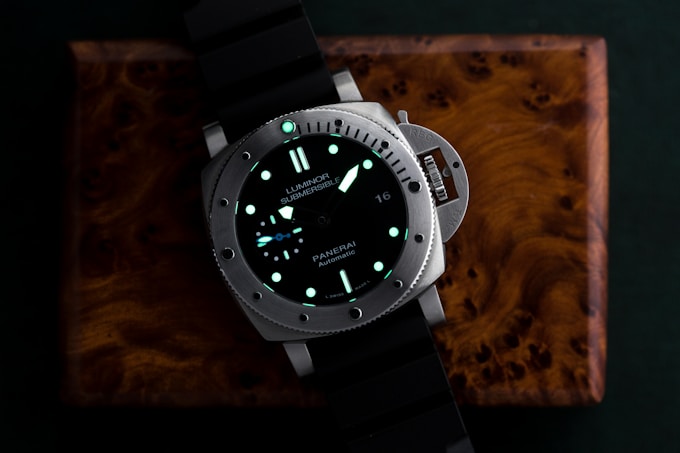
A Proper Dive Bezel
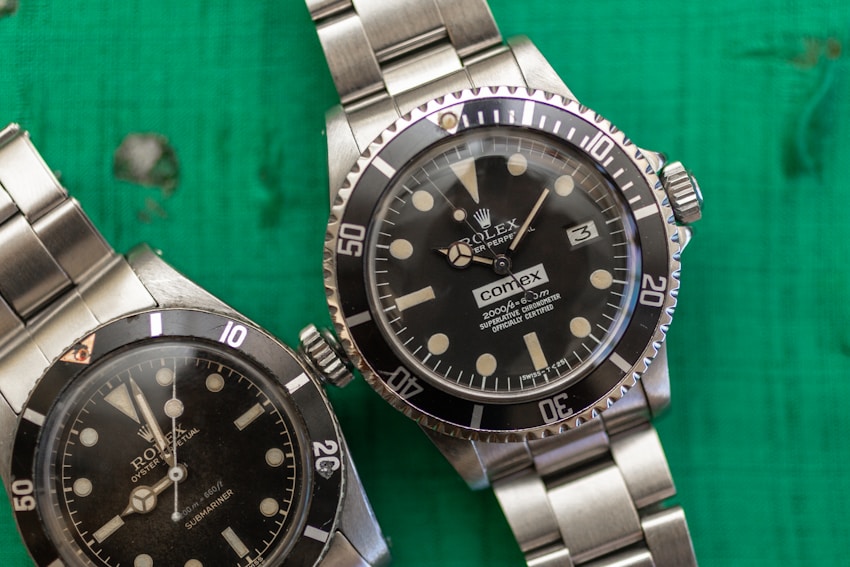
Arguably the most distinctive element of a dive watch, the bezel is used to mark the start of your dive and then track your bottom time using the progression of the minute hand. A dive bezel should rotate unidirectionally in a counterclockwise direction and be easy to grip, easy to read, and preferably have a luminous marker at zero (often called a “pip”). Avoid bezels with smooth edges or confusing text, in favor of those with sharp jimping (the bezel serrations) – with extra points for those bezels that offer enough grip to be set while using gloves (required in all but the warmest waters).
A Good Bracelet (Or Water-Ready Strap)
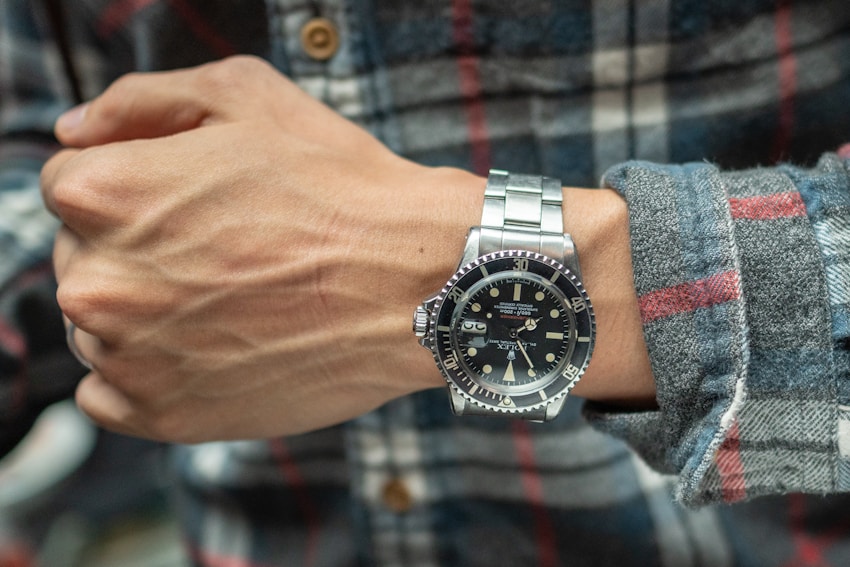
This is often a separating point between watches meant to look and wear like a dive watch and watches actually intended for diving. While there are exceptions, the format calls for either a steel bracelet or a rubber strap. As you may find yourself in a wetsuit (or even a drysuit) you will want an option that can handle more than just your usual topside wrist. If you need to consider the thickness of your wetsuit, look for a steel bracelet with a built-in extension or opt for a rubber strap with some extra length. Steel or rubber, the strap or bracelet should be simple, strong, easy to rinse off, and mounted with some trustworthy spring bars. After all, subaqueous recovery may not be an option.
Fuss-Free Care (AKA Chill Vibes)
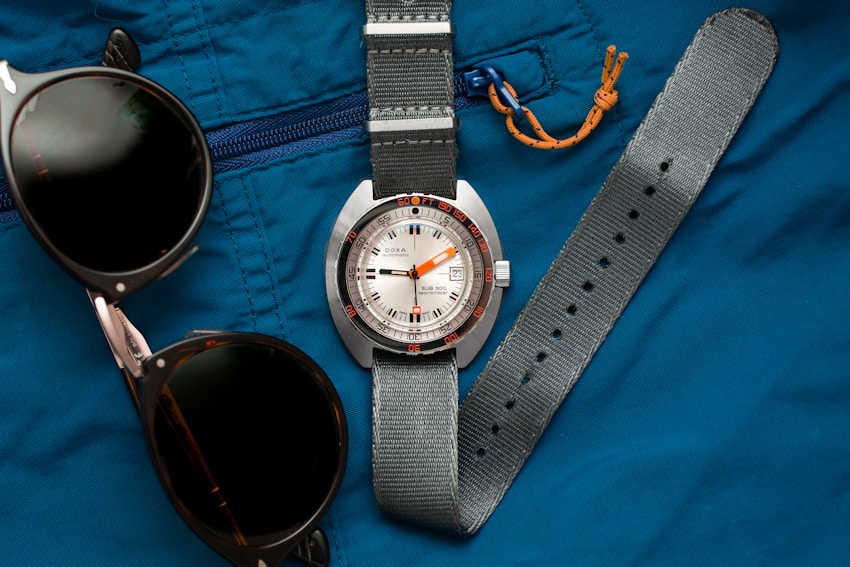
You already have a computer, so do you really want a dive watch that is unwieldy when topside? Making a watch that is dive-capable is not that hard, but making a dive watch that is everyday capable is more of a feat. Look at the icons of the form – the Submariner, Seamaster, and the like; these were watches meant to be worn every day – not left on a shelf until it was time to kit up for your next dive. A great dive watch should be comfortable, versatile, and easy to care for. Avoid intricate bezel and case designs that will trap debris and saltwater. Instead, look for the sort of watch you can rinse off on the dock and en route to a sunset and a cold beer.
Get More Articles Like This in Your Inbox
We're constantly creating great content like this. So, why not get it delivered directly to your inbox? By subscribing you agree to our Privacy Policy but you can unsubscribe at any time.





